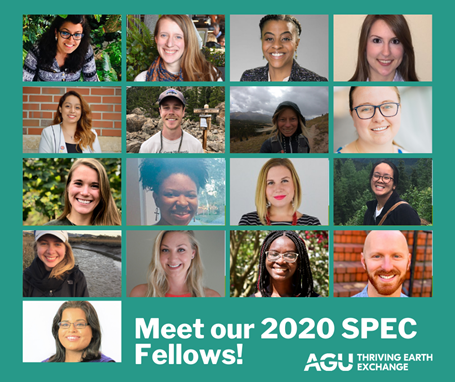Our Science, Policy, and Engagement Cohort (SPEC), sponsored by the Gordon and Betty Moore Foundation, guides community science projects in partnership with community leaders and scientists across the U.S. with a special focus on media and policy engagement.
Latest Updates
In a series of workshops, project teams are building knowledge and skills to engage effectively with the broader community, policymakers and the media.
The first workshop focused on “Identifying your audience and crafting a message that sticks.”
Video not working? Click here to open in a new window.
The second workshop focused on using communications plans to identify, document, and share project milestones in ways that engage multiple audiences and amplify project impact.
Video not working? Click here to open in a new window.
The third workshop focused on how to use various forms of multimedia most effectively.
If you’d like to jump to a particular section, the timestamps are as follows:
- Pre-production: 3:18
- Production: 29:26
- Post-production: drawing 1:06:00
- Multimedia in the media and in policy, Q&A 1:22:10
Video not working? Click here to open in a new window.
The fourth workshop explored how various teams have mobilized their communities in the past.
Video not working? Click here to open in a new window.
Meet the Fellows

SPEC Community Science Fellows are exceptional individuals working in a volunteer capacity to guide community science projects from idea to impact. Get to know our Fellows.
Explore the Projects
Given travel restrictions associated with COVID-19, we were able to redesign this program to accommodate a greater number of Fellows and communities, expanding its reach from eight to 16 projects across the U.S.
Learn what they’ve achieved so far:
- Quantifying the environmental benefits of using urban greenery to remove particulate matter in South Central Los Angeles, California
- Engaging community to protect the Pinole Creek Watershed: Assessment of trash impacts to promote a thriving ecosystem in Pinole, California
- Mitigating flood risk for small town economic and community development in Paxico, Kansas
- Mapping the extent of the Tar Creek Superfund Site and other potential risks in Ottawa County, Oklahoma
- Analyzing upstream inputs to Ore Lake and assessing wetland restoration options for regional flood mitigation in Ore Lake, Michigan
- Achieving zero waste Fairfax County, Virginia
- Updating FEMA approved multi-hazard mitigation plan for a more resilient community towards climate change hazards in Barren River Area Development District, Kentucky
- Designing a living shoreline to mitigate flooding and increase community resilience in American Venice, New York
- Curating wildfire knowledge, resources, and best practices for residents living with wildfire in Carmel Valley, California
- Designing public green spaces for carbon sequestration and environmental justice in San Ysidro, California
- Establishing an air quality monitoring network to inform local strategies in Columbus, Ohio
- Assessing the hydrologic regime of the Kiamichi River to support sustainable management in Kiamichi River basin, Oklahoma
- Improving coastal conservation through collaborative observations in marine protected areas along the California coast
- Assessing the health impacts of increased urban sprawl in Beaufort County, SC due to water contamination
- Identifying and prioritizing wetland restoration sites in the Lower Illinois River Valley
- A values-focused approach for community conversations about the economy, environment, and well-being in San Juan Basin of Colorado
